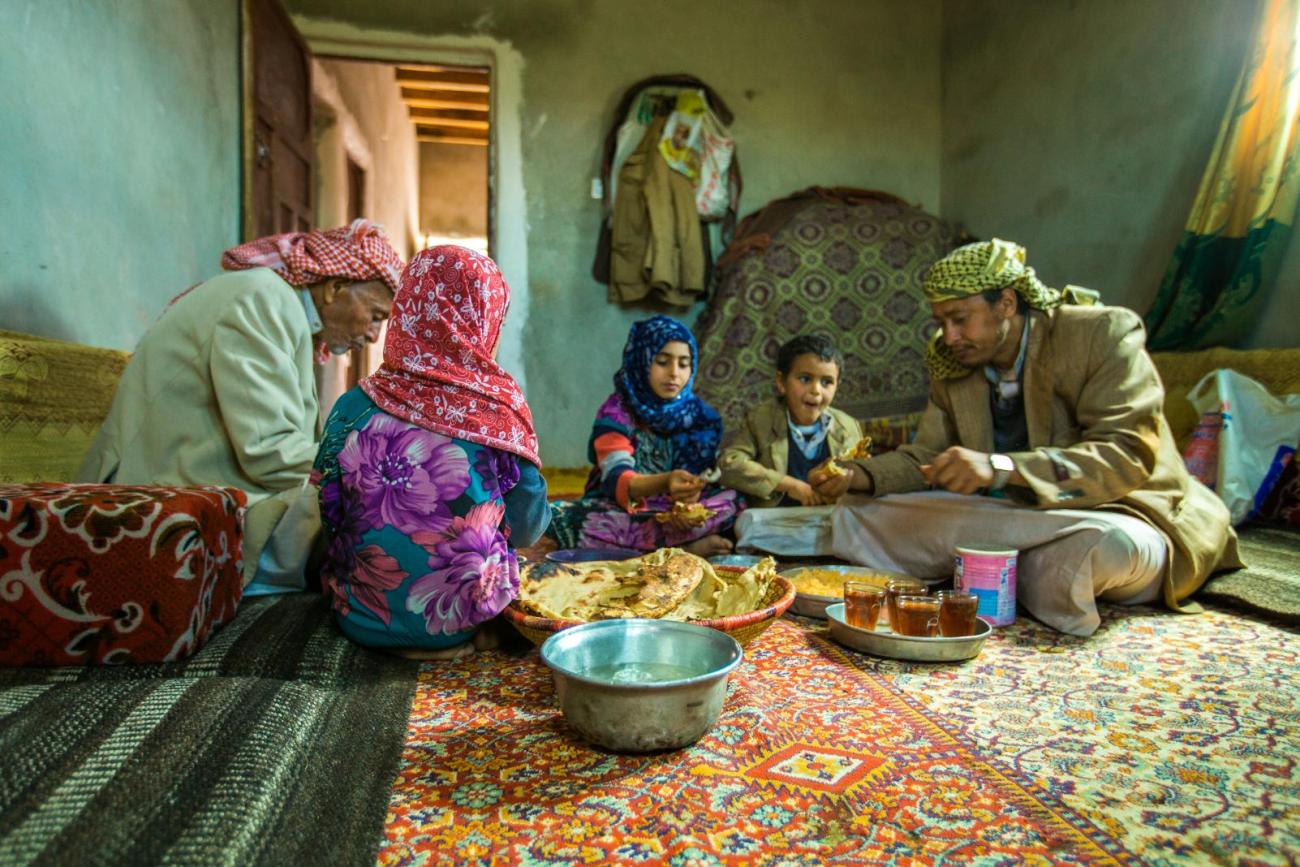UNICEF has established a cash transfer project in Yemen to reach nearly one third of the population. The project complements the direct delivery of supplies and empowers recipients to make purchasing decisions based on their own needs.
The humanitarian crisis in Yemen is affecting 22 million people, half of them children. More than two million people are internally displaced, and many businesses and Government offices have closed. More than one million public sector employees are without work or income. Prices for imported goods have become prohibitively high and the local currency, the rial, has dropped to one quarter of its pre-conflict value. Still, local markets for basic necessities have continued to function to varying extents, especially in safer parts of the country.
In addition to procuring and delivering vaccines and other medical, health and nutrition supplies, UNICEF has also implemented a cash transfer project to balance some of the challenges in delivering aid, such as procurement, importation and logistics. The cash transfers are unconditional, meaning that families can use them as they choose. Families can buy the type of food, clothes and medicine they need, or pay school fees for their children. Some have invested in goods needed to establish small businesses such as bread making or sewing.
The programme is funded by the World Bank’s International Development Association and co-financed by the Government of the United States, with UNICEF as the executing agency. In 2018 the project successfully delivered two disbursement cycles, benefiting more than 1.4 million families – nearly 9 million Yemenis. Each household received an average of 15,000 rials per disbursement.
The recipients of the cash are the people who were previously served by the Yemen Social Welfare Fund. The project helps to preserve the country’s own social protection system and support families who were already identified as extremely vulnerable before the conflict. It thus helps maintain a base support system to rebuild from when the conflict ends.
The design of the project identified and managed risks before and throughout the implementation. Included in the design were measures to ensure that participants’ safety and data would be secured. Measures were taken to prevent risk and detect fraud, and to ensure the safety of those delivering the cash. Systems were also put in place to address grievances and deal with allegations of fraud.
UNICEF’s expertise in sourcing, vetting and contracting local service providers led to the contracting of two commercial banks which rely on their local affiliates – including bank branches, local shops and mobile teams – to disburse the cash. They operate more than 1,000 payment sites across the country. To enable the service providers and participants to access these sites during ongoing conflict, UNICEF relies on local contractors to inform communities of the project, liaise with authorities and help ensure smooth implementation locally.
Monitoring has consistently shown that families spend the cash quickly to address immediate needs. Nine out of ten purchased food, one in four used the cash to cover the cost of medical consultations and medicines, and one in five paid back debts.
In Yemen, giving the most vulnerable children and their families unconditional access to cash is a direct and effective way of helping them to subsist during the conflict. It also contributes to sustaining local markets, which will be key to rebuilding the society in the future.



